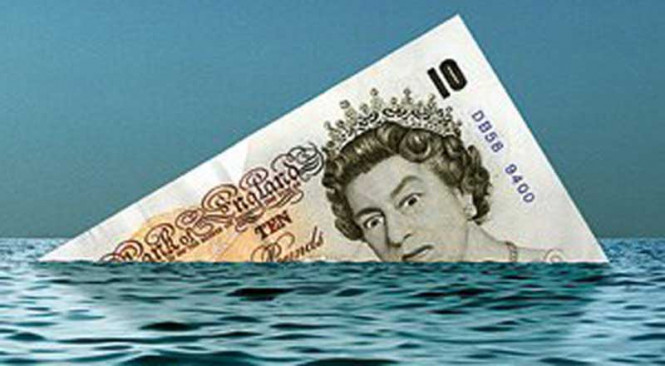
According to some analysts, the British currency is trying to grow on a weak foundation. Experts do not see strong grounds for raising the pound. But on the contrary, GBP is similar to a sand castle that can collapse from any adverse factors.
On Thursday, July 2, the indicated currency surprised the markets with a sudden rise, for which, according to experts, there were no prerequisites. The GBP/USD pair broke through the psychologically important barrier of 1.2500 and rose sharply by 0.4%, to 1.2516. However, the rapid increase was interrupted: buyers could not consolidate on these peaks. On the morning of Friday, July 3, the GBP/USD pair slipped to the range of 1.2459 - 1.2460. A little later, the GBP/USD pair gained altitude, rising to the level of 1.2477, but only memories remained from previous achievements.
According to the analytical company ING, the current growth of the pound is caused by a short-term correction. It can be noted that the pound in relation to the dollar, has grown by more than 200 points over the past three days, without any significant reasons for this. ING believes that such baseless growth, not supported by fundamental incentives, will be temporary. A further strengthening of the pound is hindered by a number of negative factors, the main of which is the problems associated with negotiations on trade relations between the UK and the EU.
On the Brexit issue and its accompanying problems, in particular the conclusion of a trade deal and the extension of the transition period, Boris Johnson, the British Prime Minister, was categorical. Earlier, he said that the country was ready to abandon the current transitional agreements with the European Union "according to the Australian scenario." It can be recalled that Australia does not have a comprehensive trade deal with Euroblock countries. The lion's share of trade between the EU and the Green Continent corresponds to the standard rules of the World Trade Organization (WTO), and special agreements apply only to certain groups of goods.
Failure to extend the transition period could be a challenge for the UK in the future. At the moment, it all depends on whether London and Brussels can agree on mutually beneficial trading conditions. In case of failure of the next negotiations, which must take place before January 1, 2012, the parties will act in accordance with the rules and tariffs of the WTO.
The current situation knocks the ground out from under the feet of the pound, dispelling illusions about its further growth. A small help for its rise was the proposal of B. Johnson, which provides financial assistance in the amount of 5 billion pounds. According to experts, this can support the British economy, which was seriously affected after the COVID-19 pandemic. On this positive wave, the pound reached new highs, demonstrating an upward correction in the GBP/USD pair.
An important role in the worsening position of the pound was played by not too positive macro statistics in the UK. According to economists, disappointing macrodata strengthens the probability of additional monetary support from the Bank of England. This may put additional pressure on the pound and further undermine its position.
It can be recalled that last month, manufacturing activity in the country improved slightly, but this decline of positivity did not affect the market. According to the Markit/CIPS report, in June, the PMI purchasing managers index for the UK manufacturing sector reached 50.1 points, exceeding the May indicator by 40.7 points. The current value of the index (above 50) testifies to the strengthening of business activity. However, other indicators were not up to par: in the first quarter of 2020, British GDP declined by 2.2% qoq and 1.8% yoy, disappointing the market. During the reporting period, the country's balance of payments showed a deficit of 21.1 billion pounds, exceeding experts' forecasts.
Another serious threat to the continued growth of the pound remains the high probability of another outbreak of coronavirus infection. In the United Kingdom, the situation with COVID-19 is currently relatively stable. However, this fragile balance can be disturbed at any time, and experts warn that the disease will get out of control. In this regard, the rating agency S&P Global has worsened the annual forecast for the British economy, warning about the possibility of an "ideal storm". According to analysts, the reasons for this development may be a repeated outbreak of COVID-19 and the "hard" Brexit. Against the background of current nervousness and uncertainty, the potential for reducing the British currency remains.
Despite the "sandy" foundation of the pound, the GBP/USD pair is not going to give up and is constantly trying to strengthen. Experts believe that strengthening the position of the pound is possible in the medium and long term, when its position becomes more stable. Experts do not exclude that the pound will find solid ground by this time.
The material has been provided by InstaForex Company - www.instaforex.com